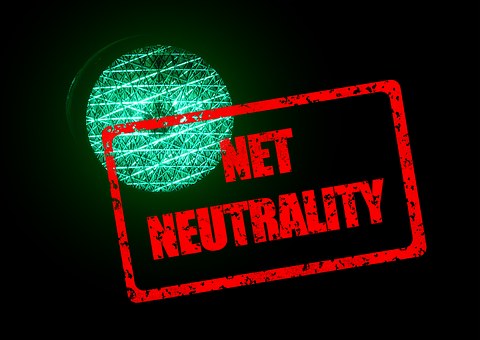
Net Neutrality was coined in a 2003 paper by Tim Wu, titled “Network Neutrality, Broadband Communication”, who is a Columbia University professor, it is much like how the American constitution was founded. Everyone is equal under the law. Net neutrality is the digital wild west. Every data is equal. No data is prioritized over another. No data takes priority over others. Net Neutrality ensures that internet providers provides equal access to any internet data and neither slow or hasten any content because a company paid them to do so. By that same reason, it is also to help ensure ISP will not charge their customers a fee so they can access certain contents, or their data will not be slowed down and others who can pay to have faster data. If net neutrality was not enforced by the FCC in the mid-2000’s, according to wired.com, “we might not have Netflix or YouTube today.” That is because if companies cannot afford to pay to be on the fastlane (picture heavy traffic and you can’t go on a fast track, on I-15) or even on the lane at all, then they will not be able to survive. These services depends heavily on viewership to exist.
On Feb. 26, 2015, The FCC ruled in favor of net neutrality. According to npr.com, The FCC Chairman at the time stated “that no one, whether government or corporate, should control free open access to the Internet.”
Trump’s new Chairman of FCC, Ajit Pai, has successfully repealed the net neutrality rules on June 11, 2018, giving a major victory for ISP providers, according to theinsider.com, such as Verizon, Time Warner Cable, Comcast, AT&T, Altice,and Charter.
Prior to 2015 “mobile ISPs regularly block access or slowed down different services.” AT&T as an example would use this tactic so that iPhone users will use AT&T technology instead of that of a third party’s, such as Skype and other VOIP (voice over internet protocol). Theinsider.com also reports that, if you want to see no net neutrality in action, look towards Portugal.
This month on Sept. 29, 2018. Gov. Jerry Brown, passed a Net Neutrality law in the state of California and the Trump administration sued California “over tough net neutrality law”, theverge.com reports. California Attorney General Baccera harshly criticized the Trump administration “for ignoring the ‘millions’ of Americans” against the repeal of the net neutrality laws.
The California Net Neutrality bill’s sponsor, California Senator Scott Weiner, said this “While the Trump administration does everything in its power to undermine our democracy, we in California will continue to do what’s right for our residents…”
So what exactly is the Trump administration undermining? So in short, the FCC no longer has any restriction over web traffic from internet providers, such as AT&T and Verizon and broadband companies like Comcast and the like.. They do not have to treat all web traffic the same. They can prioritize which traffic goes and doesn’t. If companies want their traffic to be prioritized, these companies will have to pay a fee. By the same token, if you want to see these companies, or stream YouTube for example, if your internet provider deems it so, you may have to pay for the privilege to see it. This affects any streaming services, and yes even podcast or that favorite music streaming app you may have.
Repealing the net neutrality laws are mainly good for business owners, specifically, internet providers, but not for the consumers.
Some apps, customers have pay for a subscription to stream, but if they have to pay just so they can have internet traffic to survive, those fees will be passed on to the consumers. If customers cannot pay or will not pay those fees, and if there is not enough revenue coming in for those companies, then they may also cease to exist.

